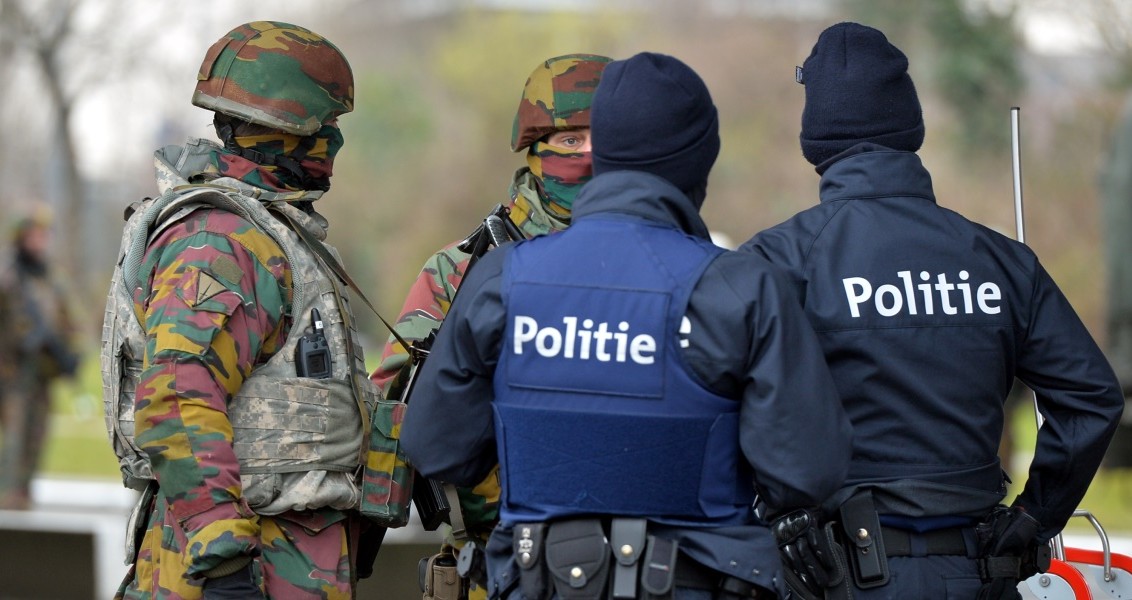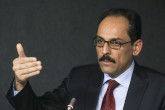Striking a healthy balance between liberty and security has always been a difficult task for governments. When one takes precedence over the other, problems arise. Since 2015, Turkey has been trying hard to protect individual liberties and keep its citizens safe against the dual threats of PKK and DAESH terrorism.
Meanwhile, terrorists have been targeting European capitals since May 2015. Most recently, a group of DAESH militants detonated bombs at Brussels Airport and the Maelbeek metro station. The explosions claimed 34 lives and left at least 260 people injured.
By many accounts, what happened in Brussels was a disaster foretold. The most recent terror attacks not only revealed security lapses but also proved that Turkey and the European Union must cooperate more closely to address security threats. On Wednesday, President Recep Tayyip Erdoğan told reporters that Turkey had deported Ibrahim el-Bakraoui, one of the airport bombers, to the Netherlands last year and maintained that neither the Dutch government nor the Belgians took their warnings seriously. The scandal was not just a failure of European intelligence services either, as it relates to a broader lack of coherent counterterrorism policy across the continent, which needs to be addressed by taking European-wide security cooperation to the next level.
In light of the Brussels attacks, European leaders must work with Turkey to address three long-term challenges.
First, Turkey and Europe should adopt a joint regional policy to keep Syria and Iraq, breeding grounds for terrorism, from becoming failed states. To restore peace and stability in the region, the European Union must start to think bigger and prevent Russia from strong-arming the moderate rebels into negotiations. Having led efforts to stem the refugee flow, Germany can pioneer the foreign policy initiative and work with Turkey to counter-balance the emerging U.S.-Russia bloc. German Foreign Minister Frank-Walter Steinmeier recently told his Russian counterpart that the Syrian crisis must be resolved without further delay. This could be a great place to start.
Secondly, the European Union must refuse to play favorites among terrorist organizations and work with Turkey to develop a blanket ban on violent groups. In doing so, Europe would take a clear stance against Washington’s hypocritical distinction between the PKK in Turkey and the Democratic Union Party (PYD) in northern Syria. Instead of allowing armed groups like the PKK, which the European Union considers a terrorist organization, to fly their banners in the heart of Brussels, European leaders should take a clear stand against terrorism.
Finally, Turkey and the European Union should adopt a joint policy on the future of DAESH in Syria and Iraq. Until now, the international community has been poking around in an effort to harm ISIS but still lacks a comprehensive strategy. On one hand, Bashar Assad’s regime seeks to reclaim the DAESH-occupied ancient city of Palmyra, and, in Iraq, government forces are launching a ground offensive against Mosul in cooperation with the Shiite militia. However, some 400 DAESH militants have completed special training across Europe, according to media reports. With no coherent counterterrorism policy in place, terrorists abandoning Syria and Iraq might unleash hell in Turkey and the rest of Europe. At this point, making bold statements at a special summit will not cut it. Nor will beefing up security and placing liberty and open societies at risk help prevent radicalization among disenchanted minorities. Unless meaningful action is taken now, European pundits who spent the past couple of years ignoring the difficulty of fighting terrorism and talking about the lurking authoritarianism in Turkey will now have plenty of time to tell the story of how European democracy went out of business.
The claim that Turkey and Europe have a shared destiny is no longer fancy lip service for politicians. The most recent terror attacks show that Turkish and European leaders must build a new security mechanism based on mutual interest to address concrete threats against their citizens.
[Daily Sabah, March 26, 2016]
In this article
- Foreign Policy
- Opinion
- 2015
- 2016
- Avrupa
- Bashar Al Assad
- Counterterrorism
- DAESH
- Daily Sabah
- Democratic Union Party (PYD)
- Europe
- European Union (EU)
- Foreign Minister
- Frank-Walter Steinmeier
- German Foreign Minister
- Germany
- Hollanda
- Iraq
- Kurdistan Workers' Party Terrorist Organization (PKK)
- Middle East
- Netherlands
- PKK - YPG - SDF - PYD - YPJ - SDG - HBDH - HPG - KCK - PJAK - TAK - YBŞ
- Recep Tayyip Erdoğan
- Russia
- Syria
- Syrian Civil War
- Syrian Conflict
- Syrian Crisis
- Terror
- Terror Attack
- Terrorism
- The President of the Republic of Türkiye
- Turkish Foreign Policy
- Turkish President
- Türkiye
- United States (US)



